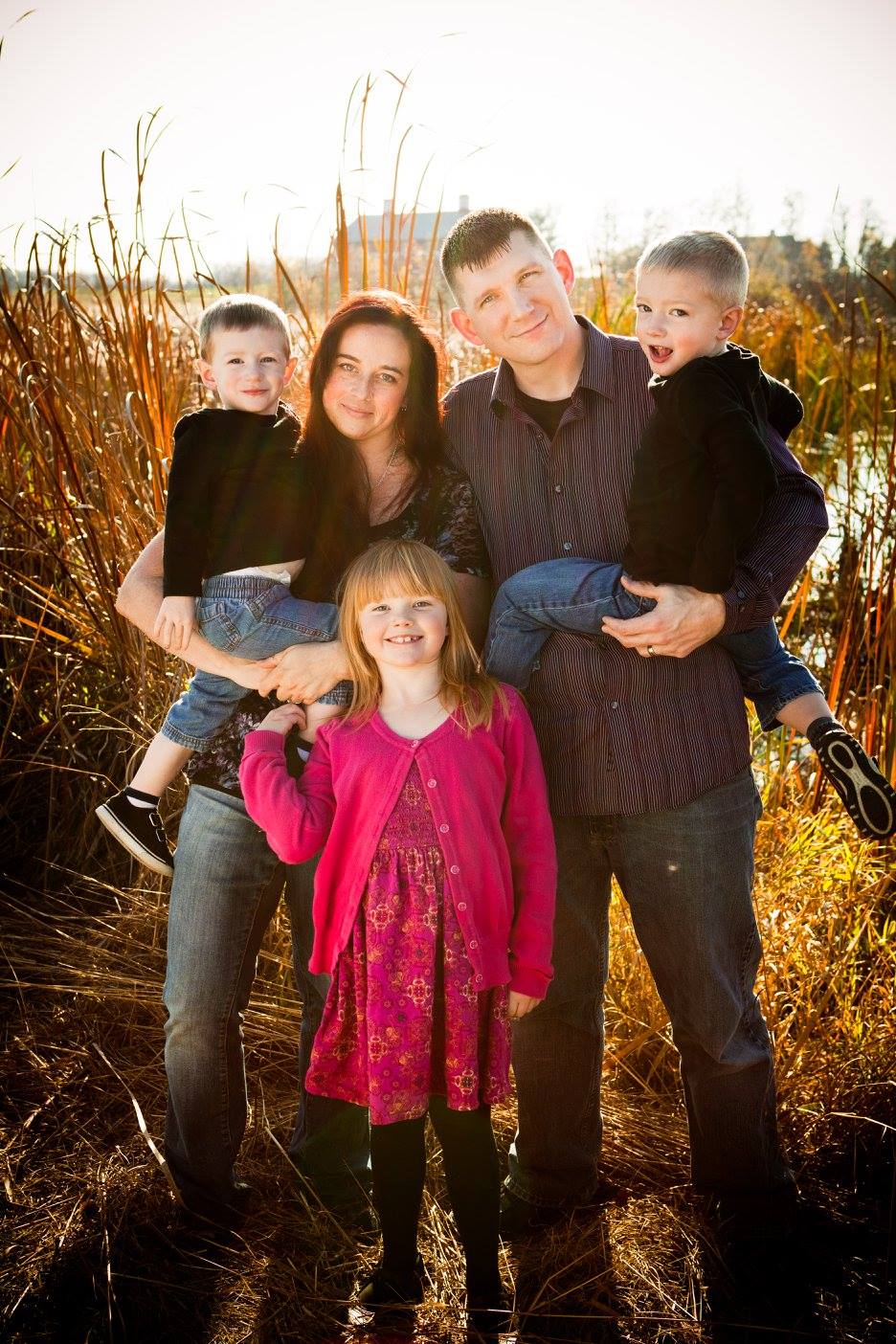A while back we had a special guest blogger, Heather Puff. She had a WhatFriendsDo team to help organize the help her friends were eager to give. Wise words from someone who has been there.

If you’re here, reading this, chances are that you or someone you care about has received a diagnosis that is going to, or already has, significantly altered his or her life. First of all, I would like to tell you that I’m sorry you’re facing this challenge. Whatever the challenge is - whether you’re potentially facing end-of-life care, a long illness, or even a short illness that contributes to dramatic life changes - these challenges affect everyone who loves the person with the diagnosis, and they’re important and valid, and worth taking the time to acknowledge and work through.
This past summer, shortly after I turned 35, I received an unexpected diagnosis. With no symptoms whatsoever, a CT scan for an unrelated incident showed a tumor in my right lung. To make a long story short, the tumor was cancerous and had to be removed, along with approximately half of my lung. Lung surgery is serious business - it’s a difficult surgery with a long recovery period, and I have 3 young children at home that I care for full time (ages 7, 4, and 3). Thankfully, my friends and family rallied around me, and as of this writing I’m 8 weeks out from surgery, doing better than expected, with no evidence of any further tumors.
Thinking about how to approach the announcement of my diagnosis really made me think about what kind of support I wanted - and equally as important - what kind of support I did not want. Below I’ve put together a list of Do’s and Don’ts to help friends and family be sure they are providing the kind of support their loved one wants, and are not contributing to additional distress. No one intentionally causes more distress for their loved ones facing illness, but sometimes when we don’t know what to say or do, we say things in the moment that make us feel better, but not the person we’re trying to care for. Hopefully this list provides some guidance for finding ways to help that really make your loved one feel supported and contribute to meeting their needs.

DO:
Listen more than you speak.
Oftentimes, just being present is appreciated by someone going through a difficult illness. While not all advice or anecdotal stories are helpful, feeling heard and having the chance to get things off their chest almost always helps, at least a little.
Make specific offers for help, rather than generic “let me know if you need anything” statements.
People often don’t call if they need something, or, in the moment of realizing they need something, may not think to call you, even though you want to help. This is especially true if you are not an immediate family member or very close friends. A quick script for an offer is as simple as, “I’m available (name a time - this Monday, every other Tuesday afternoon), and I would love to help with (name a few tasks you’re willing to do - laundry, picking up groceries, taking the kids to the zoo). Can I come by and take care of one (or more) of these for you?”
After my diagnosis, my cousin from out of state messaged me and said, essentially, “I’m too far away to cook or clean your house, but I’m wicked good at research. What can I research for you? Doctors, facilities, anything else?” As it turned out, I was overwhelmed with trying to figure out child care for my kids while I was out of commission, and how we would afford said childcare. He stepped right in and found multiple childcare assistance resources. I would never have thought to ask him about these if he hadn’t specifically offered.
Remember your loved one’s immediate family.
Husbands and wives tend to get overlooked during serious illnesses, but they are typically the most heavily impacted people aside from the person with the diagnosis. Offer to take your friend’s husband out for a beer (if he’s into that kind of thing). See if your friend’s wife wants to get a coffee, or needs some down time. Don’t forget your loved one’s children, or extended family members with which they have close relationships. These are the people who are caring for them on a day-to-day basis, and helping them get refreshed helps your loved one, too.
Recognize that your friend is grieving, and validate their grief.
Whether your loved one is grieving activities they have had to give up, goals that their illness has limited their ability to pursue, the loss of the future they had planned on, or anything else related to their illness, their grief is not only real and valid, it is necessary. Grief is the process by which we work through losses - big losses and small losses - and stunting that tends to make things worse.
Yes, I know, quilting circle might seem small in comparison to a big diagnosis. But if quilting circle was important to your loved one and she can no longer participate in it, it’s a loss for her. Acknowledge that even these small things are losses to be grieved, without minimizing them in the face of a larger diagnosis.
Respect any guidelines or boundaries your loved one has set.
If he or she doesn’t want visitors right now, don’t insist on visiting. If certain topics have been declared out of bounds for conversation, don’t bring those topics up. Remember that if your loved one has set guidelines or boundaries, he or she has done so for a reason - most likely to decrease unnecessary stress and improve quality of life or the likelihood of recovery.
Check out this outstanding article from the Los Angeles Times that sets some great guidelines for who we should comfort and who we can turn to for comfort during crisis.
Repeat after me: Comfort IN, Dump OUT. Seriously, take the time to read the article. It’s life-altering.
Keep checking in.
Your loved one might not be up for activities, visitation, or even conversation much of time, depending on what’s going on with their illness, treatments, how they’re feeling physically, and their emotional state. That’s ok. It doesn’t mean they don’t care about you or that they’ll never be up for those things again - it just means they can’t do those things right now. Just keep coming back, even if you don’t get much of a response. Set a weekly reminder on your phone to message or call just to say, “I’m thinking of you. Is there anything you’d like to do?”

DON’T:
Don’t freak out or break down in front of your loved one.
The very last thing that a person facing a life-altering diagnosis needs is to have to continually comfort other people about it. They are doing plenty of their own coping, and having to cope with other people’s grief or fear over and over and over is exhausting. Remember that you are not the only person they’ve had to tell - they are having this same conversation with dozens of people.
If you need to freak out, do it with a different friend, or your dog, or a big bowl of ice cream. Don’t do it with your loved one.
Don’t assume your friend or family member shares your religious beliefs, or that religion brings them comfort.
We live in a global, diverse world, and it’s no longer a safe bet that your loved one is part of mainstream religion. If you regularly take part in religious ceremonies with this person, or you’re intimately familiar with their faith system, that’s a different story. But if not, don’t assume. Ask your loved one what their preferences are as far as religious talk or encouragement, and then respect those preferences.
Don’t use cliche phrases such as “everything happens for a reason”, or, “God has a plan”.
These phrases can feel invalidating and insensitive to someone who is struggling or suffering. If you can’t think of anything to say, but you feel like you need words, a simple, “I’m thinking of you and your family”, or “I’m so sorry you’re going through this”, is more sincere and more likely to help your loved one feel supported and cared for.
Don’t criticize your loved one’s emotional response to their diagnosis.
He or she might feel a wide range of emotions, from fear to anger to despair to denial and beyond. There’s no good precedent for how to feel when you receive a life-shattering diagnosis. Let them feel what they need to feel. Criticism or invalidation of that isn’t helpful.
Don’t criticize your loved one’s treatment choices.
Yes, your dad’s brother’s uncle’s cousin did this one thing for their illness, and you think your friend should do it too. As hard as it can be, recognize that your loved one is the only one who can make treatment choices for his or her self. They are almost certainly working with a team of doctors to guide them, and may also have religious or cultural factors that play into treatment decisions. Respect that, and allow your loved one to make their own decisions.
If you’ve heard of a wonderful new treatment option that you just have to share with your loved one, present it gently, without the expectation that your loved one will pursue it. A simple, “I read about (treatment option) recently and it sounded interesting. If you’d like me to get more information about it, I’d be happy to.” suffices. Leave it at that without pushing.

I hope this guide helps you feel better prepared to support your loved one through their illness. Remember that the key to caring for someone well is to care for them how they would like to be cared for, even if that’s not how you would prefer to be cared for. Just by caring enough to stop and think about how you can best love and serve your friend or family member, you’ve gotten on the right track!